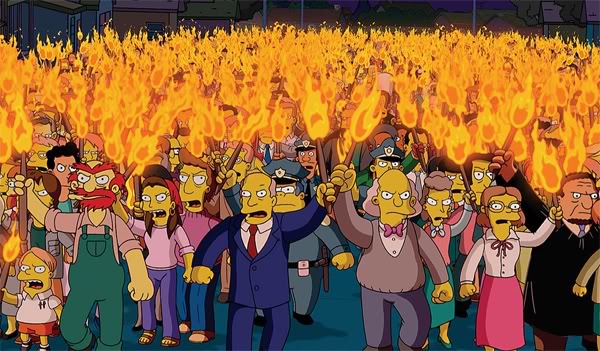
(Editor’s note: This article was written prior to the announcement Thursday evening that the Atlanta Braves would be trading Andrelton Simmons to the Los Angeles Angels for Erick Aybar, Sean Newcomb, and Chris Ellis.)
With the Hot Stove season kicking off, rumors began flying from all directions about nearly every team in baseball. Fans of the Atlanta Braves expected the Braves to be attached to some of these rumors, since, as we know, the Braves are in the middle of a short-term rebuild. However, Atlanta Braves’ nation lost its collective minds when a rumor emerged that the Braves were “deep in trade talks” with an NL West team that, according to ESPN’s Jonah Keri, might involve shortstop Andrelton Simmons:
Source: #Braves trade talks with NL West team revolve around Andrelton Simmons.
— Jonah Keri (@jonahkeri) November 12, 2015
Keri is one of the best baseball writers in the business, and he is not usually one to report things that are mere speculation. In fact, Keri is more an analyst, and has rarely been among the typical rumor-mongers in the past. However, the report from Keri began an avalanche of hate tweets from Braves’ fans, warning the front office that they were done with the team if Simmons was traded. Never mind that many of those same fans spent the last two seasons talking about Simmons being overrated, overpaid, and a defense only shortstop whose bat will never come around…but I digress.
A common refrain among the tweets, Facebook comments, and comments on news stories was near hatred for Liberty Media, the entity that owns the Braves. The feeling among a very large contingent of Braves fans is that Liberty Media – the giant, faceless corporate media entity that purchased the Braves from Time Warner in 2007 – is simply using the Braves as a ‘tax writeoff.’ In addition, the complaint is that Liberty Media is siphoning all the profits from the team, thereby leaving the team too weak financially to compete in the current baseball economy, despite Atlanta being a top 10 media market.
While it is true that the Atlanta Braves typically are in the middle of the pack in payroll dollars, the reality is that it isn’t Liberty Media holding payroll down (more in this later). The Braves’ payroll and operating budget are set by Braves’ longtime Chairman and CEO Terry McGuirk. McGuirk and President John Schuerholz run the day-to-day business operations of the Braves, while President of Baseball Operations John Hart runs the day-to-day baseball operations. Liberty Media has virtually no involvement with the club; the team operates as a stand-alone entity, surviving or failing based on its own revenues generated. From an interview with McGuirk in the Atlanta Business Chronicle:
ABC: The Braves were profitable during the first nine months of the year. Does that money go to Liberty Media or is it reinvested in the Braves?
TM: Basically, all of the money at the Braves. We’ve never really lost money with the Braves. Baseball is not a widely profitable business. If you took all of the free-cash flow of all of the 30 teams, it’s pretty much zero. That’s sort of a fairly well known fact. If you actually, do have free cash flow, you’re among a minority. We have always managed the team to at least break even on free cash flow or make a little.
<snip>
ABC: How is the payroll set?
TM: As you know, I’m the control person of the team, which is in the coin of the realm of baseball is the person who has to make the decisions — no one else can make the decisions. That being said, I don’t think I’ve ever been in a better partnership than the one I have with the Liberty guys.
I will try to simplify a hugely complex transaction that will hopefully clarify the often misunderstood relationship between the Atlanta Braves and Liberty Media. By way of background, I am an accountant by trade. At the time of the transaction, I was an assistant to one of the parties with access to the transaction details. He was involved in the due diligence process, and I assisted him with some of the work. Some of the information here is personal knowledge from that work, while the majority of it is from articles and stories already written.
[sc:InContentResponsive ]
The Background
To understand the Liberty Media and Atlanta Braves marriage, you have to know a little of the backstory.
Time Warner was struggling. They were trying to shed different assets that were not a core part of their business, while also trying to take more control of the company by buying up as much of their outstanding stock as they could. Time Warner had acquired the Braves in 1996 when Ted Turner merged his Turner Broadcasting System with Time Warner. This effectively ended Turner’s sole ownership of the Braves, which had begun when he bought the team in 1976. In an effort to divest itself of non-essential properties and save some cash, Time Warner began looking to sell the Braves in 2006.
There were several suitors who expressed interest in the Atlanta Braves, including current Atlanta Falcons owner Arthur Blank and Atlanta real estate investor J. Ron Terwilliger. However, in early 2006, Liberty Media emerged as the leading candidate to buy the Braves. Liberty Media was in the business of running media outlets, primarily TV networks, newspapers, and publishing houses. The company had no experience running a sports team, though they did, at various times, own sports networks and manage two sports venues in Colorado. Over the years, Liberty Media, through various transactions and acquisitions, had acquired large amounts of Time Warner stock.
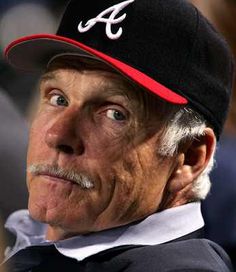
The Deal
Time Warner wanted Time Warner stock, and lots of it. Liberty Media had Time Warner stock, and lots of it. Over $1.8 BILLION of it. But Liberty Media did not want to simply sell the stock to Time Warner. If they did that, Liberty Media would have taken a roughly $600M tax hit in various taxes. They had acquired the stock in years previous, sometimes as many as 20 years earlier, at a time when it was valued at much, much less than it was in 2006.
Luckily for both parties, there was a way to avoid some (okay, A LOT) of those taxes by taking advantage of a tax law that was on the books that was set to expire. Call it a loophole, call it a tax dodge, call it whatever you want. Congress called it The Tax Increase Prevention and Reconciliation Act of 2005. Basically, one of the provisions in the law called for a significant reduction in the long-term capital gains tax rate. However, recent changes to the law would limit the amount of capital gains that could be affected in any transaction. The stock held by Liberty Media would be affected by this law, and the language that would allow this deal to happen was set to expire in 2006.
For nearly 14 months, the companies made offers and counteroffers, ultimately arriving at a the framework that became the final transaction. It was finalized hours before the tax laws they were trying to take advantage of expired. Literally, the law would have expired at midnight, about 6 hours after the deal was reached. MLB called an emergency owner conference call to get the approval, and the deal was approved, just minutes before the pertinent tax law was set to expire.
This is a very simplified version of a very complex financial transaction involving two multi-billion dollar companies negotiating a $1.83 billion dollar deal. Essentially, Time Warner created a new company and moved assets into it. The assets owned by this new company were the Atlanta Braves Inc./Atlanta Braves National League Baseball Club (valued at $450M at the time), Leisure Arts Inc. (a division of Time Warner that owned about 20 different hobby and crafts magazines), and ~$960M in cash. Time Warner then traded – did not sell – this company, and all assets owned by this new company, to Liberty Media in a ‘tax advantaged asset swap’ (accounting jargon for trading two equally valued investment portfolios) for about 68 Million shares of Time Warner stock, valued at about ~ $1.85B at the time (after capital adjustments). The key to this deal was the trade of the assets, because trading them – rather than selling them – would avoid the bulk of any capital gains taxes, provided that the assets were held for five years following the trade.
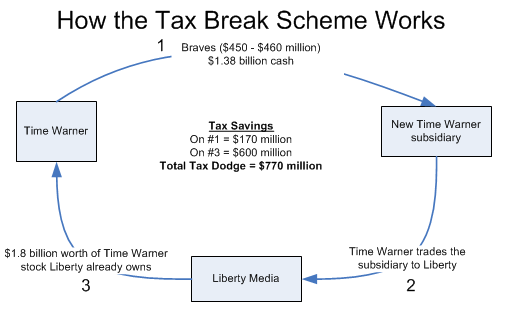
In simple language, Liberty Media and Time Warner could significantly reduce their overall tax hits (and avoid some capital gains taxes) by trading investments with each other and holding on to those investments for five years. Liberty Media had no interest in the Braves specifically. Liberty Media’s primary interest was divesting itself of a large chunk of falling Time Warner stock. But in a traditional sale, they would have paid close to 2/3 of the sale amount in various taxes. Because traded assets have their basis (cost, for lack of a better term) reassigned when changing hands, they could ‘swap’ $1.83B in assets with Time Warner and have a much, much smaller tax hit, provided certain conditions were met. Liberty Media wasn’t interested in the Braves; they were simply looking through Time Warner assets for one with an approximate value needed to balance out the deal.
Under tax law, if the deal went through, Liberty Media would be prohibited from selling the team for at least two years from the date of the sale without taking the very same tax hit the deal was designed to avoid. Also, since Liberty wasn’t purchasing a ‘company’, but was instead trading ‘investments’, they were prohibited from infusing cash into the ‘investment’. They couldn’t just send money from Liberty Media to the Braves (to increase payroll or pay operating expenses) because it is not allowed in this type of transaction.
Under securities law, Liberty Media was also limited from just sending money at will to the Braves. Liberty Media is a publicly traded company with a board of directors and shareholders and fiduciary responsibilities to those shareholders. The Braves are a non-essential, non-core part of the entire Liberty Media business group. For Liberty Media, sending money that should rightfully go back to shareholders (who bought into Liberty Media for their experience as a media company) could put them in a potentially very bad situation for neglecting those fiduciary responsibilities.
[sc:InContentResponsive ]
Other Concerns
There were concerns with MLB, as well. First, the deal had to be approved by 3/4 of the owners. Some owners had expressed concerns to MLB that this was just an example of a huge corporate entity taking over an established, marketable, winning franchise with no interest in keeping it going. Secondly, there were concerns that Liberty Media would run the franchise into the ground and/or relocate it. So, MLB stepped in and drew up conditions on the Buy/Sell agreement. If the conditions were breached, MLB had the right to punish the franchise owners, potentially including termination of the franchise rights.
One of the conditions was that Terry McGuirk would continue as the CEO of the Braves, and he would be the final say in all matters operationally, just as he had been when Time Warner owned the team. Liberty Media also was contractually bound to keep payroll at least what it had been for the average of the three years previous (about ~$81M). But Liberty Media went a step further, and they basically told MLB (my paraphrasing here) ‘We have no interest in running the team, and we have no experience running a team. We’re going to let the baseball people – McGuirk and Schuerholz – run the team, because we don’t know how to do that. The Braves will operate entirely independent of Liberty Media, and they will survive or fail based on their own revenues generated.’ Liberty Media was also discouraged from relocating the team from the metro Atlanta area.
The Result
The effective 5-year holding period for Liberty Media to not be able to sell the Braves without consequence expired in 2012. I fully expected to see Liberty Media sell the team when that period ended. But the Braves have produced a small profit for them, so there is no real need to shed them. If the Braves turn a profit, the profits are simply reinvested in the Braves. Liberty doesn’t really draw any profits generated by the Braves.
@msubiscuit I don't ever question if front office is doing its best. And the team reinvests all revenue. Liberty doesnt really take a profit
— KC Covington (@FriedBasballATL) October 7, 2015
The deal, as structured and when finalized, ended up saving Liberty Media and Time Warner a total of about $770M in taxes. That’s how big this deal was; the taxes on it would have been as valuable as the current Angels or Mets franchises. The Braves were a very small part of this deal, and were not anything that Liberty Media was interested in beyond balance. The Braves in this instance were the equivalent of Chris Johnson in the Justin Upton deal.
Again, this is an extremely simplified version of a huge, complex transaction. There are ways, if Liberty Media wanted to do it, to funnel money to the Braves. But realistically, why would Liberty Media want to jeopardize a $9B revenue company (which is subject to fairly stringent oversight as a publicly traded company) over a very small, non-essential part of it’s overall business?
Essentially, and this is probably not the best explanation (but makes the point), Liberty Media owns the Braves in the same way that you own a mutual fund in your investment portfolio. You own it, it is your asset, but you can’t just go and run it the way you see fit.
The move to Cobb County is a way to get more competitive in a mid-market by increasing other non-TV revenues. There will be year round revenues from multiple sources, such as restaurants, bars, and lease agreements with local businesses. But, it all boils down to the Braves being a self-supporting entity. They run entirely on their own revenues, and if they want to be bigger players in the current baseball economy (i.e. have a higher payroll), they will need to increase revenues.
@Truth_Sayer1 As for spending, Liberty Media lets Braves spend pretty much everything they earn. So revenue dictates spending (going up).
— KC Covington (@FriedBasballATL) September 2, 2015
Yes, this was a transaction structured primarily for tax purposes. No, Liberty Media was not particularly interested in owning the Atlanta Braves (they just needed a Time Warner asset valued at about $450M). But that doesn’t mean that Liberty Media is killing the team and should be blamed for the current state of affairs. Nor is Liberty Media using the team as a ‘tax writeoff’, since any profits are retained by the Braves. Liberty Media stays out of the way and lets the baseball people run the baseball team. They are ‘hands off’ owners, partly by design to protect the franchise.
Budgets and payroll are set by the Braves, based on revenue generated by the Braves. If fans are angry with how things are, perhaps there are other places to direct their anger. Liberty Media is certainly not an ideal owner, throwing cash and ego at the team. But they also don’t meddle in things, either.
Resources:
Bizofbaseball.com
Baseball Prospectus
ESPN.com

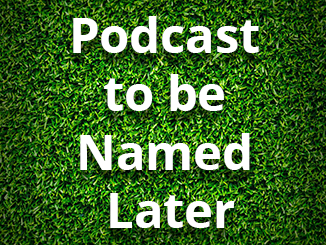

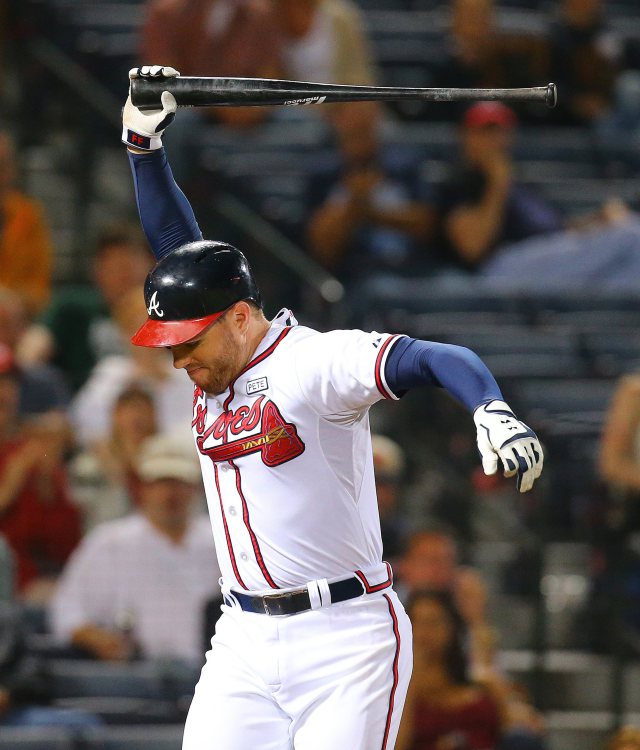
Really, really strong post. Thanks for putting this together. Well done.
Thanks for reading! I really had meant to get this put up a year ago, but it slipped my mind. All of the comments following the Simmons rumors sort of brought it up again.
I’m not sure that I believe Terry McGuirk when he says that ‘baseball is not a widely profitable business’. I’m sure there are some teams that make very good profits for their owners, and there are teams that serve as ways for their owners to offset income earned from other sources with losses by the team. I have often heard that teams are owned more for ego reasons than for income reasons.
Still, the structure that is in place in Atlanta is one in which the front office essentially controls the team. Any anger at these trades should be directed at them. It’s possible that Liberty Media issued some directive to get rid of any long-term deals, but that would go against how the team was acquired and run for the last 8 years.
Thanks for explaining this. Useful knowledge.
Thanks, Chris!
It doesn’t make this process any easier to accept, but maybe if we direct our anger to the right people, they will get the message.
This is an excellent explanation, especially for those of us that don’t live and breathe finance. A few questions, if I may:
1. Since Liberty can’t draw profits from the Braves, I assume that their interest in continuing to own the team is the assumption that it will, over the long term, increase in value. Is this a good assumption? At what point, if the value increases enough, might Liberty start to entertain offers for the Braves?
2. I’m seeing rumors about a possible Braves public stock offering. How does that fit into this picture? Is it even legal? If it were done, how would the ownership of the Braves then be divided between Liberty and the stockholders?
3. Just out of curiousity, what happened to the shell corporation that Time-Warner created, and the $960M that was put into it? Did the money go into Liberty’s bank account, or is it still being held in an asset fund somewhere?
Thanks for reading!
1) Liberty is probably happy just taking the appreciation that has happened over the years with the Braves. The new stadium deal, while it is not owned by the Braves, does have several lucrative revenue streams. As to when they might shed the Braves? I thought they would in 2012 when they were no longer hamstrung by the tax implications. I was actually surprised that they did not sell. But more on that in a second.
2) The public stock offering being made is not for stock in the Braves directly, but is what’s called a ‘tracking’ stock. Basically, people buy/sell the stock based on what they think the financial performance of the team will be. I guess the best comparison would be that it’s similar to an S&P 500 indexed mutual fund…it tracks the performance of the S&P 500. This is the same, but just for the Braves. It doesn’t provide for any ownership interest in the team itself. Also, the new company that is being offered also holds an interesting asset: a note payable to LM, from the Braves, in the amount of $165M that was lent to the team. More on that in a second.
3) The company that TW created (that held the Braves, Leisure Arts Inc, and cash) was traded to LM, who presumably took the cash and used it. I’m not privy to the specifics of how LM moved particular assets around after they acquired them, but the cash was presumably banked. It didn’t have to be held for any period.
From a purely accounting standpoint…shedding long-term debt (the contracts beyond ’16), spinning off a separate entity (the tracking stock company), creating new notes payable (assets that can be traded to other parties)…just from the accounting standpoint, it might appear that the team is being made more marketable in advance of a sale. I AM NOT saying that is the case, and I certainly do not have any knowledge or speculation about that. But from an outsider looking in, I could make that argument (that the team is prepped for sale) comfortably.
In addition, it could be the explanation for why 2017 is always a target:
– Few contracts beyond 2016,
– Fredi, being held for one year instead of hiring a a new manager for multiple years (a new owner may want his own),
– 2017 as a target date, despite not signing MLB level talent through that time frame.
But if LM was going to sell the team, I would expect it to be a complex transaction, similar to when they acquired the team. And those deals take time to structure.
Now that Simmons is gone and everybody else is on the trading block including Freeman, I was wondering do you know how much the Braves borrowed for the new stadium? I have a friend who is a CPA, but isn’t a sports fan, tell me that the Braves couldn’t borrow large sums of money without getting LM’s approval.Not knowing the particulars, but just what is in the local media he said it looks like they borrowed hundreds of millions of dollars. Is this true and they don’t own the stadium? Just what will they own and who all owns the rest, besides Cobb County that is.
Thanks for reading!
He’s correct – any large debt would have to be approved by Liberty. I do not know what the particulars are in terms of how much was borrowed or how much was cash on hand, but it appears that Liberty Media lent $165M to the Braves. The Braves will not own the stadium; it will be owned by the Cobb-Marietta Coliseum and Exhibit Hall Authority. The Braves didn’t own Turner Field either…they leased it from Fulton County, just as they will lease Suntrust Park.
From my understanding, the Braves will have partial ownership interests in some of the surrounding development, which would result in them receiving a portion of the revenue from leases and operations of businesses in the plaza. I’m sure Suntrust has their hands in the mix as well.
Thank you for your answer. I read that the final price tag on the whole thing is like $1+ billion and I know that Cobb County only invested about half the cost of the stadium and that would leave about $700 million to go. So there is a lot of other businesses buying into it too. You just pointed out that Suntrust Bank would have investment properties too. What are the advantages for the Braves to not own the stadium except of course for Cobb paying for half the stadium? I ask because it doesn’t make sense to me to invest $300 million into something you do not own.
Sorry, Jimmie…I missed this follow-up from you.
The advantages of not owning primarily involve maintenance, taxes, upkeep, and perhaps some accounting considerations (it depends on other factors that I do not know). Oh, and not spending their own money.
The team is investing $300M not just in the stadium, but also in the surrounding plaza, and they will have an ownership interest in some of the surrounding properties and businesses. And with the stadium as a key focal point of the area, it behooves the Braves to help facilitate the entire project coming to fruition. They are banking on their take over the long haul justifying the upfront costs.
Thank you for answering my question as I am very curious how this shakes out. Now I heard that there are rumors the Braves may be sold. Gets more interesting all the time. Again, thank you.
Looks like an article written by someone who SUCKS HUGE LOADS of Corporate NUT JUICE!
I’m a diehard Braves fan..and I see NO REASON why The Braves should not invest HEAVILY in acquiring some MIDDLE OF THE ORDER POWER this offseason (that is..IF ownership really wants to win in 2019 and beyond)!
The Braves are positioned to have A PLETHORA of cheap/high upside young talent on The MLB roster the next few years. Articles that give ownership ‘an out’ to POCKET THE PROFITS, REEKS of the author SUCKING HUGE LOADS of Corporate NUT JUICE!
Thanks for reading!
That’s a well thought out, intellectually sound rebuttal. You are free to suggest how any of the information is incorrect.
The complaint from most about Liberty Media is that they are only interested in profits (as f other billionaire owners somehow eschew profits…they are billionaires, after all). Ownership makes more money if the team wins. they make less, or none, if the team does not do well.
As was mentioned twice in the article, Liberty Media does not pull profits from the Braves. They will make their money when the team is sold, via capital gains.